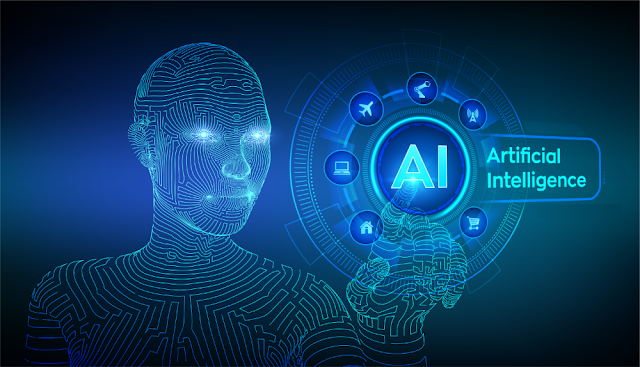Artificial Intelligence and its Impact on Society
Artificial Intelligence (AI) has rapidly emerged as a transformative technology with the potential to revolutionize the world in numerous ways.
It is now ubiquitous in our daily lives, from virtual personal assistants like Siri and Alexa to self-driving cars, and is used in a wide range of industries such as healthcare, finance, and retail. However, the rapid rise of AI has also raised concerns about its impact on society, such as its potential to automate jobs and exacerbate income inequality.The Advantages of AI
The widespread adoption of AI is driven by its numerous advantages. AI has the potential to improve efficiency and productivity in various industries. For example, in healthcare, AI can be used to analyze medical data and provide personalized treatment plans for patients. In manufacturing, AI can be used to optimize production processes and reduce waste. AI can also help businesses automate routine tasks, allowing workers to focus on more complex and creative work. Additionally, AI can be used to improve public safety by monitoring crime hotspots and predicting criminal activity.The Impact of AI on Employment
Despite the advantages of AI, there are concerns that it may automate jobs and lead to widespread unemployment. Studies have shown that up to 47% of US jobs are at risk of being automated in the next 20 years. This could have a significant impact on the workforce, particularly for low-skilled workers. The displacement of workers could also lead to increased income inequality and social unrest.However, some experts argue that AI will create new jobs and industries that do not currently exist. For example, AI could create new opportunities in data science, robotics, and software engineering. Additionally, AI could help businesses become more efficient and competitive, leading to economic growth and job creation.
Ethical Considerations for AI
As AI continues to advance, there are ethical considerations that need to be taken into account. One major concern is bias in AI systems. AI algorithms are only as good as the data they are trained on, and if the data is biased, the algorithm will be too. This can lead to discriminatory outcomes, such as biased hiring decisions or unfair treatment in the criminal justice system. To address this, it is important to ensure that AI systems are developed using diverse and representative datasets.Another concern is the potential for AI to be used for malicious purposes. For example, AI could be used to create fake news or to develop autonomous weapons. There is also concern about the impact of AI on privacy, as AI systems can collect and analyze vast amounts of personal data. It is important to establish regulations and ethical frameworks to ensure that AI is used for the benefit of society and does not cause harm.
The Role of Government in Regulating AI
Given the potential impact of AI on society, it is important for governments to play a role in regulating its development and use. Some countries, such as the United States and China, have already made significant investments in AI research and development. However, there is debate about the appropriate role of government in regulating AI. Some argue that too much regulation could stifle innovation, while others argue that regulation is necessary to ensure that AI is developed and used responsibly.There are also international efforts underway to develop ethical frameworks for the development and use of AI. For example, the OECD has developed a set of principles for AI that include transparency, accountability, and human-centric values. Additionally, the European Union has developed a regulatory framework for AI that includes ethical guidelines and transparency requirements.
The Future of AI
The future of AI is both exciting and uncertain. AI has the potential to revolutionize various industries and improve the quality of life for people around the world. However, it is important to address the potential ethical concerns and ensure that AI is developed and used responsibly.One promising area of research in AI is explainability. Explainable AI (XAI) aims to develop AI systems that can provide clear explanations for their decisions and actions, making them more transparent and accountable. XAI could help address concerns about bias and discrimination in AI systems and improve trust in AI among the general public.
Another area of research is the development of AI systems that can learn and adapt in real-time. This is known as continual learning, and it could lead to AI systems that can improve over time and adapt to changing environments. Continual learning could be particularly useful in fields such as healthcare, where new information is constantly emerging.
The use of AI in healthcare is another promising area of research. AI could be used to develop personalized treatment plans for patients, analyze medical images to detect diseases, and monitor patient health in real-time. AI could also be used to develop new drugs and treatments more efficiently and accurately.
Finally, the development of AI systems that can work together in a collaborative manner is another area of research. This is known as swarm intelligence, and it could lead to new applications in fields such as robotics, logistics, and transportation.
Conclusion
In conclusion
AI is a transformative technology with the potential to revolutionize various industries and improve the quality of life for people around the world. However, its rapid rise has also raised concerns about its impact on society and the need for ethical considerations. It is important for governments, businesses, and individuals to work together to ensure that AI is developed and used responsibly. With careful consideration and planning, AI has the potential to change the world for the better.








